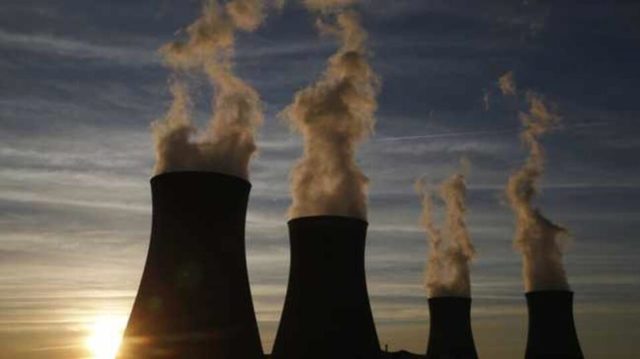South Africa intends to issue the Request for Proposal (RFP) for a 2,500MW nuclear programme at the end of March 2022 and complete the procurement in 2024
SOUTH Africa intends to issue the Request for Proposal for a 2,500 megawatt (MW) nuclear programme at the end of March 2022 and complete the procurement in 2024.
This is in support of the country’s Economic Reconstruction and Recovery Plan and to ensure security of energy supply, Deputy Minister of Mineral Resources and Energy Nobuhle Nkabane said this week.
Speaking at the 65th International Atomic Energy Agency (IAEA) gathering in Vienna, Austria, Nkabane said the country was trying to expedite its safe nuclear energy programme, which recently got a leg-up with the Department of Mineral Resources and Energy’s approval of a 2,500MW contribution by nuclear to the national energy mix.
Nkabane pledged South Africa’s contribution of €238,617 (about R4.14 million) towards the Technical Co-operation Fund for 2022, emphasising the country’s support for IAEA training activities under the Technical Co-operation Programme, through capacity building in the field of nuclear science and technology.
The minister’s statement provided an update to the milestones of the South African nuclear industry which include the preparatory work for the 2,500MW nuclear new build programme, and important projects such as the Multipurpose Research Reactor Project, the solutions in radioactive waste management, and South Africa’s participation in key IAEA programmes.
As a founding member, South Africa has contributed to the work of the IAEA, which promotes the use of nuclear technology for peaceful purposes among its 173 member states.
“In June 2020 South Africa issued a Request for Information to test the market appetite for the 2,500MW of nuclear energy and received positive responses from 25 companies that showed an interest in this programme.
“The National Energy Regulator of South Africa has recently concurred with a ministerial section 34 determination for the procurement of 2,500MW new generation capacity from nuclear energy,” Nkabane said.
She added that the Koeberg Power Station design lifespan was being extended by another 20 years through technical and regulatory work.
South Africa’s first commercial nuclear power reactor began operating in 1984, but the nuclear industry dates back to the mid-1940s, when the predecessor organisation to the Atomic Energy Corporation was formed
“We thank the IAEA for continued support through the peer review missions on the safety aspects of long-term operation at Koeberg,” the deputy minister said.
In August last year, South Africa announced a National Energy Regulator of South Africa agreement to allow for the procurement of 2,500MW nuclear energy by the planned decommissioning of the coal power plant fleet (24,100MW) post-2030, which would introduce instabilities to the national electricity grid.
The procurement of the 2,500MW New Nuclear Build Programme in 2024 provides adequate time for construction, commissioning, and connection to the electricity grid of this new capacity to ensure the continued security of supply.
Opponents of South Africa’s nuclear programme, including energy adviser for the Organisation Undoing Tax Abuse, Liz McDaid, said it was, “suspicious … to keep pushing nuclear instead of doing the obvious thing, which is renewable energy”.
Professor Anton Eberhard of the Power Futures Lab at UCT’s Graduate School of Business said new nuclear procurement would be “a wasteful and costly diversion” from solar and wind.
– BUSINESS REPORT








